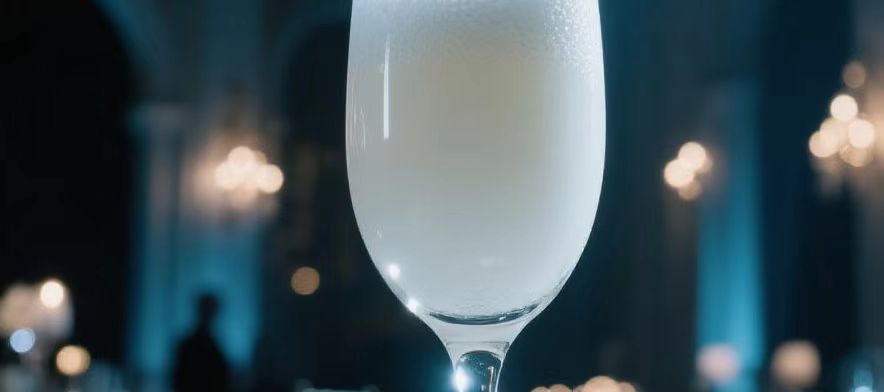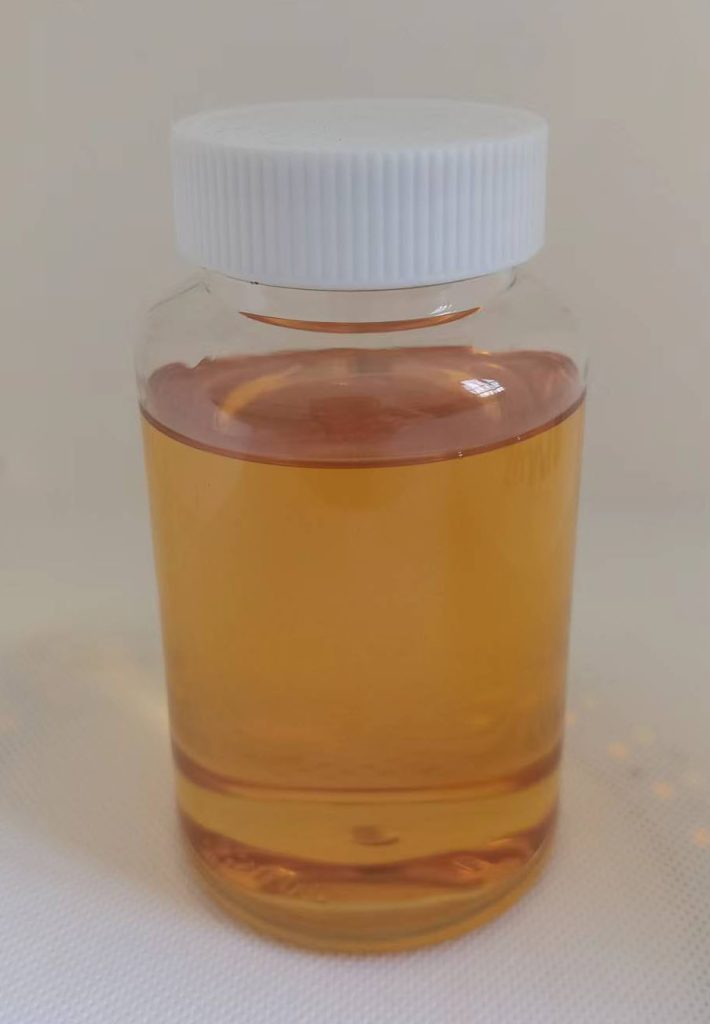Polysorbate 80 Substitute
What is Polysorbate 80?
Polysorbate 80 is used as an emulsifying agent and surfactant used in various industries, including food, cosmetics, and pharmaceuticals. It plays a crucial role in stabilizing mixtures of oil and water, aiding in the uniform distribution of ingredients that would otherwise separate. This property makes it an essential ingredient in products ranging from ice cream and salad dressings to skincare items and medications.
When considering Polysorbate 80 Substitute alternative, it’s important to understand the different options available and how they compare in terms of strength and effectiveness. One polysorbate 80 substitute that frequently comes into play is Polysorbate 20, a milder polysorbate 80 alternatives. Depending on the specific recipe and desired outcomes, Polysorbate 20 could be a suitable replacement, though it’s worth noting that its emulsifying power might be slightly weaker.
Another noteworthy group of substitutes for Polysorbate 80 are poloxamers, with Poloxamer 188 being a prominent member of this category. Poloxamers have garnered significant attention and success as potential polysorbate 80 alternatives. Structurally, they exhibit the closest resemblance to polysorbates, making them a promising option for various applications.
Their emulsifying properties and ability to stabilize oil-in-water mixtures make them compelling choices for industries seeking polysorbate 80 alternatives.
Polysorbate 80 Substitutes
Besides the mentioned Polysorbate 20 and Poloxamer 188, there are other Polysorbate 80 Substitutes that can be used depending on the product.
Mono-and diglycerides |Polysorbate 80 Substitute
The ice cream industry has been using mono- and diglycerides as a substitute for polysorbate-80, which is one of the ideas that has garnered their attention. The compounds known as mono- and diglycerides may be discovered in oils and fats in their natural state. When making ice cream, these ingredients may serve as emulsifiers, which helps to ensure that the fat molecules are evenly distributed throughout the water-based mixture.
This function is similar to what is polysorbate-80 achieves. By incorporating mono- and diglycerides, manufacturers aim to maintain the desired creamy texture in ice cream while addressing consumer concerns about the use of synthetic emulsifiers.
Glycerol Monolaurate | Polysorbate 80 Substitute
Glycerol Monolaurate, which is made from glycerol and lauric acid, has been getting a lot of attention because it might be able to replace what is polysorbate 80 in cosmetics, especially in deodorants. As an emulsifier, Glycerol Monolaurate helps mix oil-based substances into water-based solutions. This is similar to what polysorbate-80 does.
Ethoxylated Monoglyceride | Polysorbate 80 Substitute
In baked products, sauces, whiteners, frozen desserts, and icings that are not standardized, ethoxylated monoglyceride, which is derived from glycerol and fatty acids, is becoming a suitable substitute for polysorbate 80. Ethoxylated Monoglyceride is generated from glycerol and fatty acids. This chemical works very well as an emulsifier, which is a substance that assists in the movement of fat molecules within water-based mixtures. Ethoxylated monoglyceride, much like foods with polysorbate products to have the appropriate level of firmness and stability.
Diacetyl Tartaric Acid Esters of Monoglyceride | Polysorbate 80 Substitute
In the realm of baking, Diacetyl Tartaric Acid Esters of Monoglyceride, which is a one-of-a-kind emulsifier that may be used for a variety of distinct purposes, has been considered as a potential alternative to what is Polysorbate 80 in food. Polysorbate-80 is a safe, flexible emulsifier that is used in baking to enhance the texture and structure of dough, particularly when forming the desired gluten network.
This is because polysorbate 80 is an emulsifier that can adapt to different conditions. Polysorbate 80 in food is looking into Diacetyl Tartaric Acid Esters of Monoglyceride is polysorbate 80 safe substitute, particularly when it comes to the production of crispy breads like rye. This is due to the fact that consumers demand clearer labelling and more natural chemicals.
Succinylated Monoglyceride | Polysorbate 80 Substitute
In dairy, milk coffee, and non-dairy creamers, succinylated monoglyceride, created by combining monoglyceride with succinic acid, replaces foods with polysorbate 80. This employs succinylated monoglyceride for emulsification since its Hydrophilic-Lipophilic Balance (HLB) value is 5–7. For dairy-based beverages and creamers, it spreads fat molecules in liquid solutions, improves smoothness, and homogenizes.
Calcium Stearoyl-2-Lactylate
Calcium Stearoyl-2-Lactylate is made from lactic acid and calcium salts. It is polysorbate 80 safe substitute in a lot of different situations. Its many uses make it a good choice for improving structure, making sure ingredients are evenly distributed, and binding mixes. Calcium Stearoyl-2-Lactylate helps items like dried potatoes and snack dips have a uniform look and feel, which gives customers a good experience. Also, it can be used in stews, gravies, chewing gum, diet foods, and chopped and diced meats in cans, where getting the right consistency and stability is very important.
Sodium Stearoyl-2-Lactylate | Polysorbate 80 Substitute
Emulsifying agents like polysorbate 80 is safe to use personal care and beauty products stable. Creams, sunscreens, infant lotions, conditioners, foundations, and body washes. Since Sodium Stearoyl-2-Lactylate is plant-based, it may replace Polysorbate 80 in cosmetics and personal care products. Its versatility is shown by its application in many products that require to emulsify and stabilize. Sodium Stearoyl-2-Lactylate enhances product structure, uniformity, and performance. Creams that moisturize, sunscreens, and baby lotions for delicate skin employ it.
Propylene Glycol Esters | Polysorbate 80 Substitute
Polysorbate-80 may be replaced with Propylene Glycol Esters. This benefits producers and consumers. These esters may originate from a number of natural sources, reflecting the industry’s shift toward natural and healthful goods. Their capacity to increase product performance while considering consumer needs improves customer experience. However, Propylene Glycol Esters must be properly developed to function with other constituents in hair sprays and skin care products.
Sorbitan Esters | Polysorbate 80 Substitute
Sorbitan Esters have garnered attention as effective substitutes for Polysorbate 80 in food, showcasing their versatility across a wide range of culinary delights. In applications like whipped topping and icing, they contribute to the smooth texture and appealing appearance that consumers desire. In baked goods such as cakes and cake mixes, Sorbitan Esters play a role in emulsification, helping to evenly disperse fat and other ingredients. Moreover, their application extends to cocoa, fillings, and coffee whiteners, where they ensure uniform dispersion and consistent product quality.
Polysorbate 60 and 65
Opting for Polysorbate 60 and 65 presents several advantages than polysorbate 80 in food. Its ability to emulate the emulsifying properties of Polysorbate 80 while addressing clean label demands resonates with consumers seeking transparency and naturalness in their food choices. Although Polysorbate 60 and 65’s emulsifying strength might be slightly lower than Polysorbate 80 in food, it still contributes significantly to product stability.
Sucrose Esters
As a substitute for polysorbate-80, Sucrose Esters offer a distinctive approach to achieving emulsification and stability in personal care products. From eyelash products that enhance volume and length to hair treatments that nurture and revitalize, Sucrose Esters contribute to the desired textures and effects. In oil gels and skin products, these esters play a role in achieving uniform dispersion and a smooth, appealing texture. Moreover, their application extends to deodorants, where they can aid in maintaining product integrity and efficacy.
Lecithin | Polysorbate 80 Substitute
Lecithin, a naturally occurring substance often derived from soybeans or sunflowers, exhibits remarkable emulsifying capabilities, making it an excellent Polysorbate 80 alternative. Its oil-soluble nature enables the dispersion of oils into bath water, enhancing the bathing experience when used in bath bombs, tub melts, and bath oils. Sunflower Lecithin, for example, can be used as a moisturizer in lotions, creams, lip balms, and soaps. It can also be used to make emulsions. Also, its ability to link water to the skin helps the skin stay hydrated and hold on to moisture.
What is the Difference Between Polysorbate 20 vs 80?
The differences in the synthesis of Polysorbate 20 vs 80 have functional implications in various applications. While both serve as emulsifiers, their unique molecular arrangements might influence their effectiveness in dispersing oils and water-based components in different formulations. Polysorbate 80, derived from monooleate, might exhibit varying emulsifying strengths or interactions compared to Polysorbate 20, which originates from monolaurate.
Polysorbate 20 is the product of a specific polymerization reaction. It is synthesized through the reaction of sorbitan monolaurate and ethylene oxide. This reaction results in the creation of a compound that holds significant emulsifying properties. Polysorbate 20’s molecular structure is tailored to its specific application as an emulsifier, aiding in the dispersion of oil and water-based components in various products.
On the other hand, Polysorbate 80 Substitute has a distinct chemical makeup originating from another polymerization reaction. It is created by polymerizing sorbitan monooleate with ethylene oxide. This reaction yields Polysorbate 80, which shares the emulsifying qualities that its counterpart Polysorbate 20 possesses. The specific choice of starting materials and reaction conditions contributes to the variations in the resulting molecular structures of these two compounds.
Where to Buy Polysorbate 80
Triplechem is recognized for its commitment to quality and its reputation as a reliable supplier of ingredients such as Polysorbate 80. Our company’s dedication to maintaining stringent quality control processes ensures that the Polysorbate 80 we provide is of the highest quality, free from contaminants, and suitable for a wide range of applications. By purchasing from Triplechem, you can have confidence in the integrity and authenticity of the product you receive.
When it comes to sourcing ingredients for your formulations, peace of mind is invaluable. By choosing to buy from companies like Triplechem, you are not only acquiring a high-quality product but also gaining a sense of security in the integrity of your supply chain. With Triplechem’s reputation for reliability, you can rest assured that your Polysorbate 80 Substitute will meet your expectations and deliver the desired performance in your applications.


